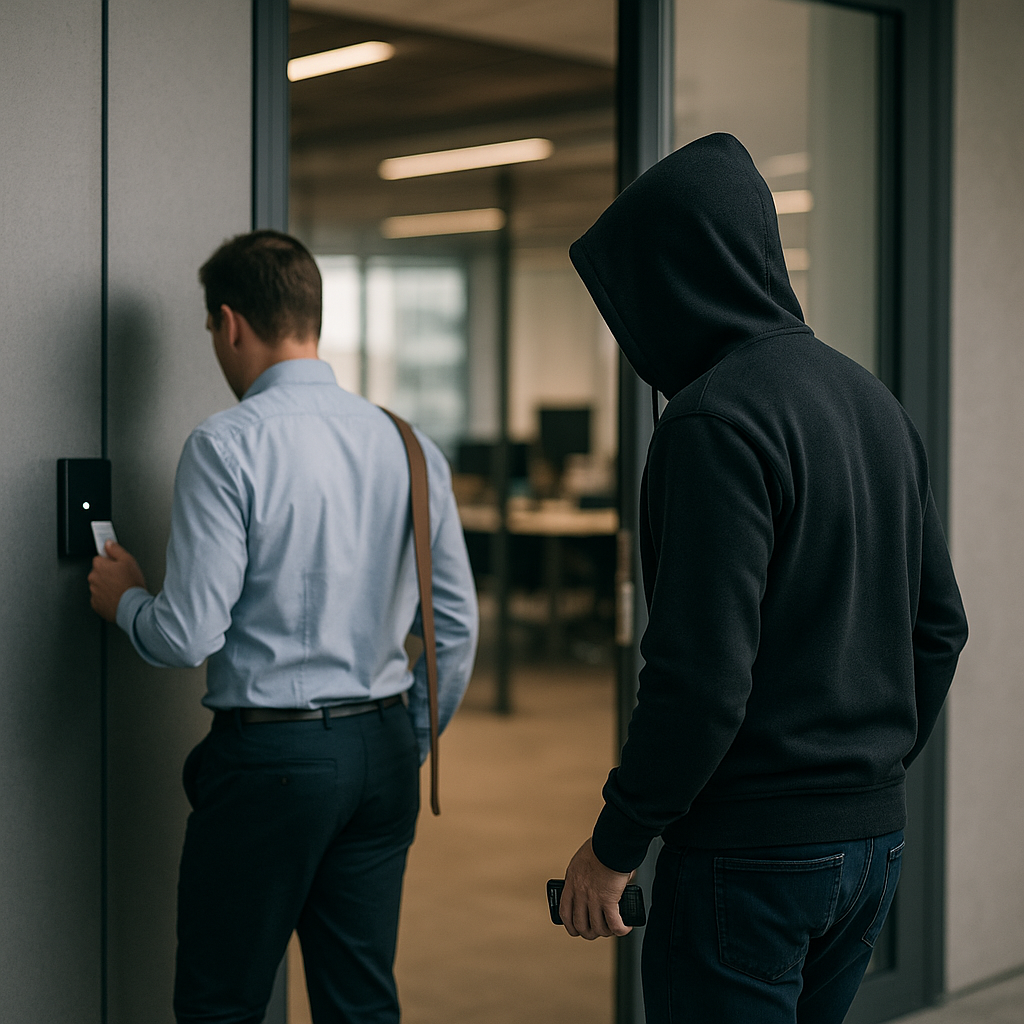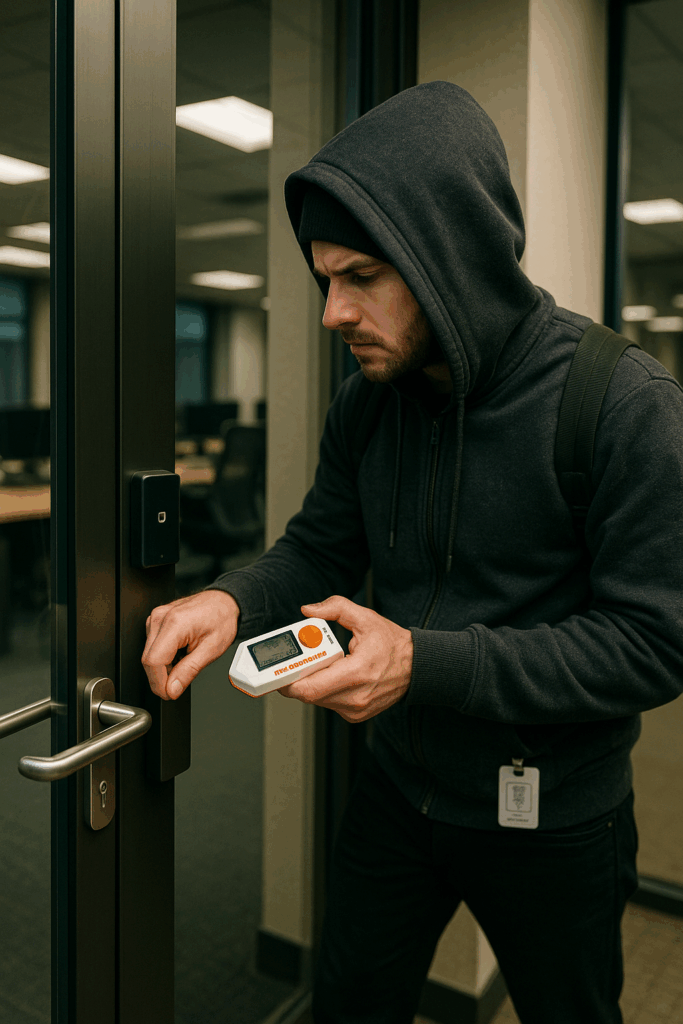
We break into your buildings the way real intruders would—so you can fix the gaps before they do.
Our Physical Penetration Test goes beyond lockpicking and door checks—we simulate how real intruders combine stealth, social engineering, and overlooked weak points to breach your facilities. From badge cloning and bypassing access controls to testing staff awareness and surveillance blind spots, we expose the hidden cracks in your physical defenses that traditional audits miss. The result is a clear, evidence-backed roadmap to strengthen your security—and every engagement includes a complimentary 30-day retest to ensure vulnerabilities are truly closed.

We attempt realistic entry using non-destructive methods, such as badge cloning, tailgating, or lock bypassing, to evaluate how easily an attacker could gain access.
We test employee badges, access cards, and door systems for cloning risks, weak configurations, and improper authorization levels.
We assess how employees respond to impersonation attempts, unauthorized visitors, and pretexting scenarios that attackers use to slip past human defenses.
We analyze camera coverage, blind spots, and alarm placement to identify exploitable weaknesses in detection and monitoring.
We inspect fences, gates, doors, windows, loading docks, and parking lots for vulnerabilities that could enable unauthorized entry.
We test whether policies for deliveries, contractors, and guests are followed or bypassed, revealing gaps in real-world enforcement.
We verify whether laptops, documents, servers, or networking equipment are left unsecured and could be vulnerable to theft or tampering.
We attempt to place rogue devices (USB drops, network implants) to see if your environment can detect and respond to hardware-based threats.
We test how emergency exits, fire doors, and backup systems could be exploited as unguarded entry points.
We evaluate how quickly and effectively staff, receptionists, or security guards notice and react to unauthorized attempts.
Findings are ranked by likelihood and real-world impact, indicating which vulnerabilities pose the greatest risk to your people, data, or operations.
You receive an Executive Summary for leadership and a Technical Report with photos, evidence, and remediation guidance for your security team.
After fixes are made, Erebus Operation provides a free retest within 30 days to confirm that vulnerabilities are resolved and improvements are working.
If your business has a front door, you need a physical penetration test. It doesn’t matter how strong your firewalls are if someone can walk in through an unlocked side door, tailgate behind an employee, or plug a device into your network in the lobby. Companies with offices, warehouses, data centers, retail shops, or any building that houses sensitive data, equipment, or cash are prime targets. If your staff hold secure areas closed with “trust” instead of strong access controls, you’re already vulnerable. Organizations with compliance obligations (PCI DSS, HIPAA, ISO 27001) are often required to test their physical security, and ignoring it can mean failing an audit. The truth is, if a stranger could enter your building without being challenged, or if you’d lose business-critical data if a laptop or server walked out the door, then you need a physical penetration test more than you think.

It’s a controlled security assessment where our team simulates real-world intruders attempting to gain physical access to your buildings, offices, or restricted areas.
Because locks, cameras, and alarms don’t stop every attacker. We reveal gaps in access control, surveillance, and staff awareness that traditional security audits often miss.
We may attempt badge cloning, lock picking, tailgating, bypassing access points, or social engineering, all within the agreed scope of engagement.
No. All activities are non-destructive and carefully planned. We simulate intrusions without breaking or disabling your systems.
Safety is a top priority. All engagements are coordinated with management, and our team carries identification letters to avoid misunderstandings.
That’s up to you. Some organizations prefer unannounced tests to measure real responses, while others inform certain staff ahead of time.
We check for weaknesses in locks, cameras, alarms, visitor policies, employee awareness, data storage practices, and how well your staff respond to unauthorized presence.
Most tests last 1–3 days, depending on the size of the facility, number of entry points, and agreed objectives.
A detailed report with photos, timelines, and evidence of access attempts—plus clear recommendations to improve security policies, physical controls, and employee readiness.
Yes—we don’t just identify weaknesses, we provide practical solutions such as improving locks, reinforcing policies, training staff, and tightening vendor access.
Absolutely. We can assess office spaces, warehouses, data centers, retail environments, and other critical facilities depending on your needs.
Yes. Erebus Operation provides a complimentary retest within 30 days to confirm your improvements are effective and sustainable.
© 2025 All Rights Reserved.